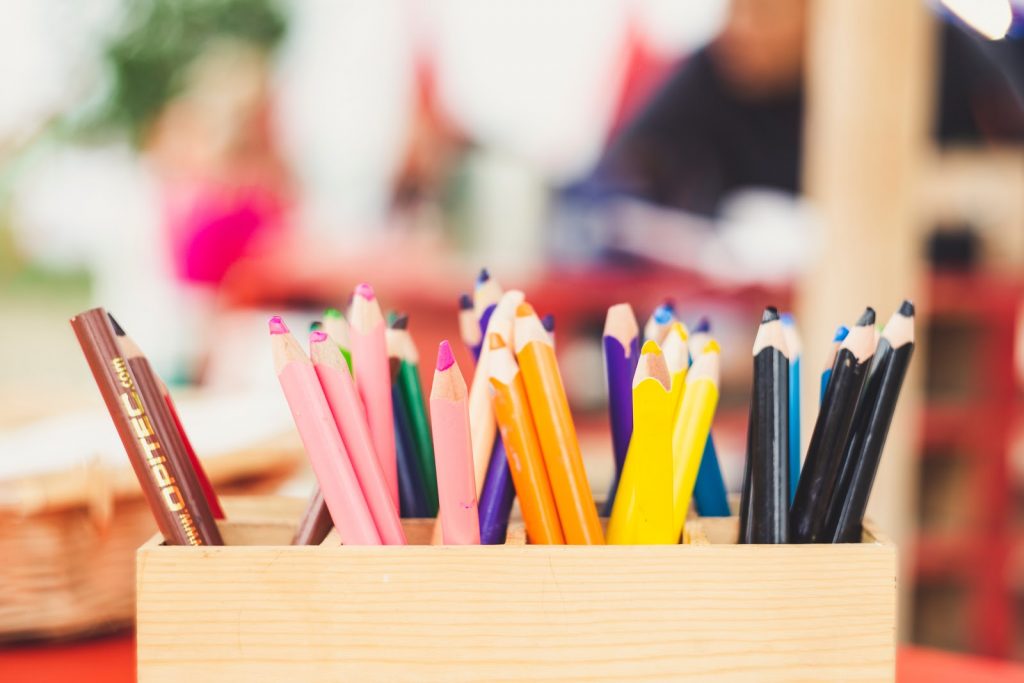
Photo by Markus Spiske on Unsplash
The “back to school” mood is a special one for parents and kids alike. In the first week or so, your little ones will excitedly share their impressions from the summer break, while parents still have some time to adjust to their new schedule, probably packed to the brim with extracurriculars, play dates, birthday parties, and let’s not forget the holidays.
As soon as that youthful frenzy fades in the face of new homework assignments and upcoming tests, your kids will once again have to deal with distractions, study sessions, and limited access to their favorite TV shows. To give your kids the positive nudge they need to study more efficiently, give learning a fun twist, and to eliminate distractions, here are a few tips to get you started as soon as all that buzz dwindles!
Develop a routine
Much like with all else in their lives, kids work best and develop with ease when there’s a reliable, stable routine they can follow. Kids need structure so that they can develop good habits, and if you help them mold the right kind of routine around their studies, then homework and studying will not be any trouble for their curious minds. Although using a planner or a digital tool may be appropriate for older kids with established habits, perhaps a more creative approach would work best with youngsters.
Set up a little to-do board above or next to the study desk in your kids’ bedroom. They can use it to pin tasks, homework reminders, study groups, and new lessons they have yet to master, color-coded, and add any notes they please. You could even use planner stickers to make it more fun for them.
Create a study nook

Photo by Ellen Qin on Unsplash
The little board is neither the beginning nor the end of your project for the kid’s study nook, on the contrary! In order to inspire hours of uninterrupted learning, the kids need to immerse themselves in an environment specially designed for that task only. In addition to equipping their room with a desk of appropriate height and storage space, you should look for an ergonomic chair that will give your little ones ample support.
Help your kids organize their materials, books and notebooks, their drawing material, and other items they need. Encourage them to keep their desk tidy and to use the desk for their school tasks only, so that they can keep distractions to a minimum.
Encourage creative outlets
Every child has different proclivities, and they all have their own processes to master new skills and absorb all of this knowledge shared with them at school. Some kids like to write it all down in neat notes, others love brainstorming, while some enjoy a more visual approach. Both for their art projects and for underlining the most relevant bits of information, using paint markers can be helpful to give their study sessions a creative edge.
They can assign colors to different subjects, such as orange for history and blue for math, or they can use them to practice drawing and coloring. Add to that, help them master the art of mind mapping so that they can remember information with greater ease.
Inspire your kids to collaborate

Some kids do enjoy studying on their own, but that is certainly not always the case. Plus, enabling your kids to study in pairs with their school friends can provide them with new perspectives and ways to better review the subject matter from each lesson, especially if they come up with unique ways to revise lessons together.
Teamwork is a life skill that every child should slowly develop, so even organizing study groups before tests can be a good way for them to revise and go over the lessons more than they would on their own. Plus, the prospect of some fun time with friends after the study session is a great source of motivation to inspire them to be truly efficient and dedicated to the task at hand.
Work on eliminating distractions
One of the biggest sources of study trouble for most kids is the time they spend using various digital devices. As soon as their social media apps notify them of a message, they’ll quickly abandon what they were doing to check their phones. This kind of disruptive behavior will only make it harder for them to develop self-discipline and focus.
So, from the very beginning, implement certain rules such as limited time of phone and tablet use, and keep those devices away or turned off during study sessions. Of course, you should lead by example, so make sure that you use digital devices in moderation as well!
Our kids live in a very noisy world oversaturated with distractions, so your approach to their schooling will make all the difference in how they form their own attitudes towards learning. Use these tips to teach them good study habits from day one, and they’ll later use them in life and work as well.



